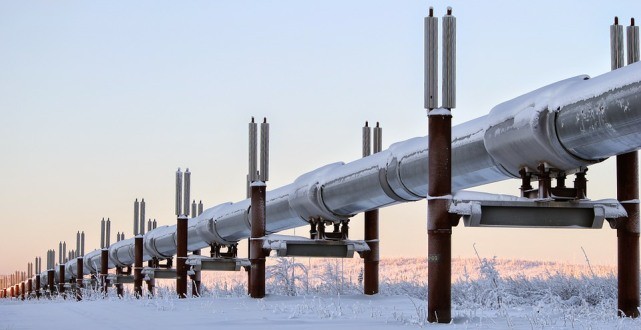Alaska is the latest place to be taught an important lesson about the curse of oil.
The curse is that the income a state derives from selling oil is sufficient to obviate the need to develop a balanced and prosperous economic base. This is all too obvious in the Middle East, where feudal monarchies and brutal dictatorships have been able to buy off their indigenous populations with the revenues from oil exports. It is less obvious in Western states, where oil revenues have tended to be used as a foundation for government borrowing rather than as a direct subsidy to the people. In the UK, for example, most of the debt-based prosperity from the late 1980s through to 2008 was based not on the policies of Thatcherism, but on the huge additional income from North Sea oil and gas.
As the cheap oil runs out, and countries are forced either to stop producing altogether or pursue expensive alternatives, the “gift” of oil revenues quickly dries up and the apparent prosperity disappears. In the Middle East, this has resulted in social fragmentation, political unrest, repression and open warfare. In the West, the impact is felt most heavily on state programmes that were developed on the assumption of continuing oil revenues. In the UK – despite the current government’s fetish with its budget deficit – the problem has massively exacerbated the balance of payments shortfall. Eventually, the UK will face a collapse in the Pound which, in turn, will result in a severe shock to the economy far worse than anything ideologically inflicted by George Osborne.
Alaska provides a model for what happens simply because it is one of the few places in the West where oil and state spending/borrowing are so obviously tied. As MSN note:
“Alaska’s $3.5 billion budget shortfall — roughly two-thirds of the total — reads like a classic boom-bust tale. With the collapse in crude prices, lower oil revenues are hitting Alaska hard. Roughly 90 percent of the state government and one-third of all state jobs come from oil money.”
Faced with a collapse in oil prices and capital flight from exploration and future production, the people of Alaska are not only losing their annual $2,000 oil rebates but, for the first time in 35 years, they are going to have to pay income tax. Moreover, existing taxes such as those on sales and on fuel itself are going to increase. But this will inevitably remove discretionary spending from the economy. There are also concerns that increased costs will impact Alaska’s tourist and fishing industries; further impacting the economy. The alternative – closing public services like schools and hospitals – is equally unpalatable.
In the UK the situation is more complex, since the UK economy is more broad-based (albeit dangerously dependent upon the City of London fantasyland). Investment in alternative energy and capital investment in Britain’s productive base could offset much of the loss of oil export revenues. That the current UK government has failed to invest despite both interest rates and energy prices being at rock bottom may turn out to be our greatest folly… one that will leave us facing similar choices to those now being made in Alaska if the oil income doesn’t come back.




